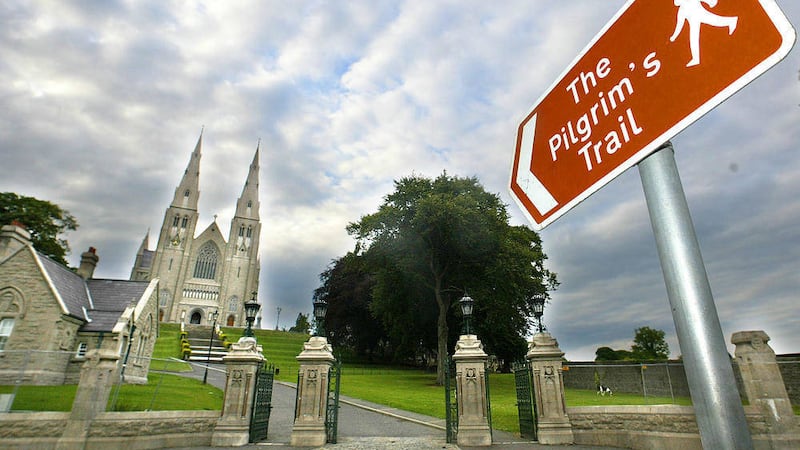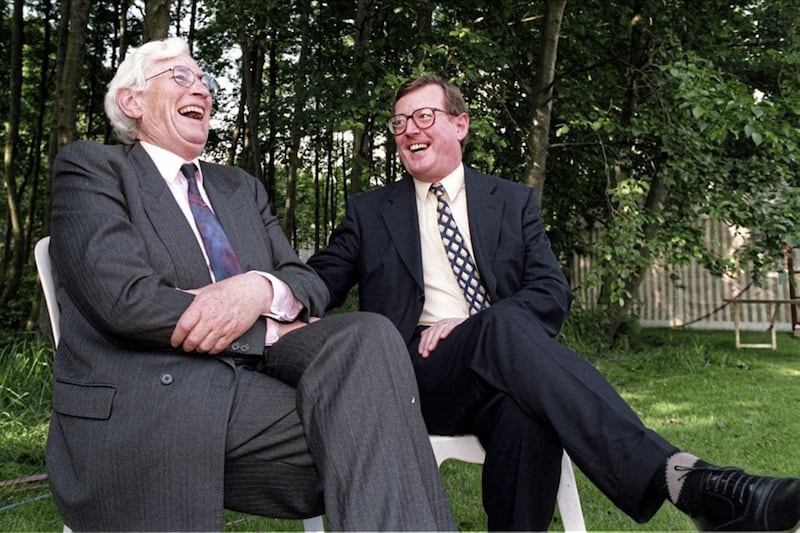WHEN it comes to making significant changes to doctrine and practice, Churches tend to move with a turn of speed that makes a glacier look like an athlete given the full Alberto Salazar treatment.
Social revolution, such as that happening in Ireland today, tends to make the Christian Churches look even more off the pace.
This leads inevitably to great wailing and gnashing of teeth as the Church wrestles with balancing being faithful to God against being culturally relevant, whatever that means.
Take the Republic's referendum decision to widen the definition of marriage to include same-sex couples, a result which marks the final nail in the coffin of the 'Catholic Ireland' espoused by Archbishop John Charles McQuaid.
Striking a different tone to their 'do as we tell you or else' predecessors and appealing to the 'common good' might have been the right thing to do for the Catholic Church's current hierarchy but it did little to stop what was clearly an irresistible tide.
Even so, the scale of support for a yes vote was, as Archbishop of Dublin Diarmuid Martin said, a "reality check".
There are reality checks everywhere for Ireland's Christian Churches these days.
Churches find these difficult enough to deal with when they come from the outside world but when they are internal they seem almost impossible.
The marriage referendum and the Ashers 'gay cake' case are examples of the former; for a case study of a seemingly intractable internal difficulty, one need look no further than the Church of Ireland.
It is locked in a dispute over how it should deal with homosexuality, whether it be gay clergy or same-sex marriage.
These may not be especially pressing issues in most rural deaneries and archdeaconries but nonetheless a vocal liberal minority has managed to get them embedded towards the top of the Church's agenda.
Most of the Church - Anglo-Catholics, evangelicals, traditionalists and charismatics - is content with the belief, based on a conventional reading of the Bible, that sex is for marriage and marriage is between one man and one woman; the liberals obviously differ.
The two sides are arranged on a more-or-less north-south basis, betraying a partitionist tendency that has been simmering at least since the wretched Drumcree dispute and questions over parades, flags and the Orange Order.
The northern Church of Ireland is also more populous than that in the south, though it is a persistent gripe that Northern Ireland representation at General Synod, its annual meeting, does not properly reflect this.
A truce of sorts had been called in the same-sex row through the creation of convoluted committee structures of the sort in which Anglicanism specialises, a Mobius twist of 'respectful listening', 'dialogue' and 'learning' without apparent beginning or end.
For reasons best known to themselves - emboldened by the referendum debate, perhaps, though surely by nothing as cynical as a casual disregard for an agreed process? - the liberals have broken ranks.
The two most liberal bishops, Paul Colton of Cork and Michael Burrows of Cashel, have repeatedly challenged their own denomination's teaching with pronouncements more in keeping with a university coffee bar discussion. Like-minded clergy have taken to the columns of the Church of Ireland Gazette.
This continued last week when the Rev Tom Gordon, Dean of Leighlin in Co Carlow, called for schism between the Church of Ireland in the Republic and Northern Ireland because of what he called "seismic differences of theological understanding".
Meanwhile, the Ashers case, fast becoming a saga worthy of any in the canon of Norse literature, rumbles on towards an appeal.
Most normal people have sympathy for the McArthur family and the situation in which they have found themselves - the idea of being compelled to do something one does not agree with is not attractive to any of us.
Whatever the equality issues at stake, the case has morphed into a lightning rod for a hotch-potch of interest groups, including becoming a cause clbre for the more theocratic tendencies of some of our esteemed politicians and their adherents.
They would like to think that Ashers was penalised for preaching the gospel and forget that unfortunate business about being penalised for not serving all of the public, including a gay man.
The marriage referendum, the Church of Ireland's difficulties and the Ashers case all raise tough questions for individual Christians about how far the church should be shaped by society as well as how far society should be shaped by their beliefs.
Like James Galway sharing his views on Irish politics, Christians can sound a little half-baked and out-there.
But they shouldn't be too worried. Isn't it meant to be that way?
In the Sermon on the Mount, Jesus encouraged his followers to be 'salt and light'; St Peter described them as "aliens and strangers" in the world; in other words, Christians, who believe they are people with one foot in the here-and-now and one in the hereafter, are supposed to be different.
And isn't the real challenge for Christians that they aren't always different enough?








